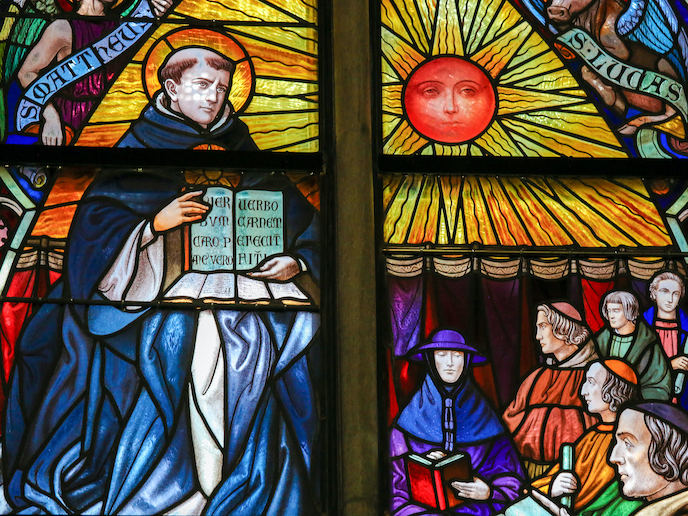Tracing the medieval roots of modern theories of mind
The Aristotelian model of perception holds that we come to know objects by perceiving their sensorial properties, such as shape or colour. Whereas, in the Augustinian model it is our mind that actively drives the process. This is because operations of the soul, such as perception, could not be caused by material objects since the soul is immaterial. Here, what makes perception possible is the way we are tuned to encounter the world. The EU-supported project, RiP, studied these two highly influential theories of mind to better understand medieval philosophy’s dynamism. The team’s textual analysis explains how medieval thinkers used notions of rationality, and how that relates to complex thought and behaviour. “While scholars knew the Augustinian model of active perception is found in multiple guises throughout the period, we traced the main lines of its development,” explains project coordinator José Filipe Silva from the University of Helsinki. The key texts have been made freely available for future research.
Rationality and the senses
RiP sprang from the belief that research on historical philosophical sources is essential for understanding the origin and development of concepts we now use. One such concept is the notion of rationality, on which many socio-economic models rest. The project focussed on the medieval period – under-investigated considering the number of textual sources about which little is known. As it started around the 5th century and continued into the 16th, it is one of the longest of all the historical periods of thought. “We can’t dismiss the voices of those who wrote about these issues over 1 000 years of European thought. I would say they deserve a hearing! We wanted to make their texts available for consideration,” says Silva. Many of the sources RiP worked with were handwritten texts, predating print, and so the first task was to transcribe them. “The more I looked at them, the more I doubted traditional accounts of how medieval thinkers conceived perception of the external world. What was often presented was simplistic and overlooked alternative accounts beyond the dominant Aristotelian one,” adds Silva. Analysing the notion of rationality, RiP looked at what has been dubbed ‘the flow of reason’, which describes the relation between higher order, rational, cognitive powers and lower order sensory ones. RiP questioned the traditional account which posited consensus around the dominance of Aristotelian theory whereby the senses transmitted information to reason in a linear and separate manner. RiP highlighted that for some authors, like Thomas Aquinas, human sensory power operates under the influence of reason in certain conditions. For Blasius of Parma, this implied no clear separation between sensory and rational powers but that perception, for example certain visual properties such as distance, requires the cooperation of both.
Towards medieval theories of agency
By offering new insights into a major period of European history, RiP provides a better understanding of the intellectual background to a common European conception of the mind. “Without research investments like RiP, we risk losing 1 000 years of European cultural production from one of the most dynamic periods of human history, which saw the birth of universities. What a waste!” says Silva. To follow up, the researchers will investigate medieval conceptions of what role (if any) rationality plays in the way human beings behave – and how this was seen as contrasted with animal action.
Keywords
RiP, Aristotelian model, Augustinian model, rationality, perception, medieval, mind, reason, philosophy, library, intellectual



